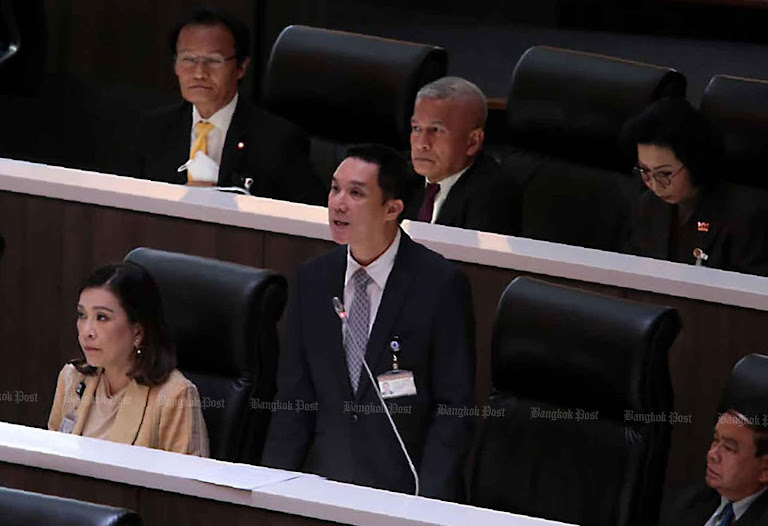Thailand Gambles on Casinos and Amnesties: Economic Savior or Political Trap?
Can Thailand gamble its way to stability, or will economic hopes and political deals unravel a fragile nation?

Is Thailand’s future written in the algorithms of economic growth, optimizing for GDP at the expense of social cohesion? Or is it a desperate attempt to hack a broken political system, a series of calculated forgivenesses designed to rewrite a history riddled with coups and conflict? The postponement of the casino-entertainment complex bill, initially slated for July 3rd, isn’t just a scheduling delay; it’s a symptom of a deeper tension — a nation caught between the allure of rapid development and the persistent ghosts of its past. According to the Bangkok Post, the delay, pegged at about one month, is framed as a move for “further review.” But beneath the surface lies a far more complex story about economic aspirations, political pragmatism, and the enduring power of deeply entrenched social anxieties.
Danuporn Punnakanta, Pheu Thai’s spokesman, insists the delay isn’t linked to political rifts. But let’s be clear: in politics, even gravity has a partisan slant. The purported comprehensive review, focusing on gambling access for Thais and money laundering risks, is a necessary, and frankly, transparent, exercise in political triangulation. Pheu Thai needs to project an image of prudent governance to skeptical elements of Thai society while simultaneously whispering promises of Macau-style riches to potential investors.
“A comprehensive review would be held to gather diverse feedback, particularly regarding gambling access for Thais and potential money laundering.”
This isn’t just about casinos; it’s about leverage. Leverage in attracting foreign capital, leverage in appeasing a restive populace, and leverage in navigating a political landscape perpetually on the brink. The Pheu Thai Party is attempting a high-wire act, balancing the promises of economic liberalization with the very real risk of triggering a social earthquake. They yearn to emulate Singapore and Macau’s economic success, seemingly ignoring that those cities operate within drastically different political and cultural ecosystems — systems where dissent is often managed with a degree of control unthinkable (or at least, unachievable) in Thailand.
The subsequent prioritization of political amnesty bills on July 9th offers a stark and revealing contrast. Thailand’s history is punctuated by cycles of political violence and reconciliation, each amnesty a temporary suture on a wound that never fully heals. Pheu Thai’s own amnesty bill, while pointedly excluding those convicted under Section 112 (the lese majeste law) — a provision that serves as both a political tripwire and a tool for silencing dissent — is a calculated gamble. It aims to forge consensus, or at least temporary political truces, across a landscape scarred by decades of conflict. The invocation by House Speaker Wan Muhamad Noor Matha of “national reconciliation” highlights how easily such grand aspirations can be weaponized within the machinations of parliamentary politics.
We need to zoom out to understand the broader forces at play here. The pursuit of foreign investment through casino development reflects a broader trend: Thailand’s struggle to redefine its economic identity in a rapidly evolving global landscape. Tourism contributes substantially to Thailand’s GDP, roughly 12%, but Pheu Thai leadership seems to believe it needs a jolt, some spectacle, to maintain its competitive edge against rival destinations. Yet, as work by scholars like Christina Suh has highlighted, the societal impact of legalized gambling, particularly on vulnerable populations, needs to be considered if Thailand wants to avoid compounding existing social issues. It’s a high-risk proposition, placing a bet on the assumption that Thailand can out-compete its neighbors in the global casino arms race.
The deeper, more uncomfortable truth is that Thailand’s perpetual political instability stems from fundamental inequalities. The coups and protests aren’t random outbursts; they’re symptoms of a system perceived as rigged against vast swaths of the population. Pheu Thai’s reliance on the casino bill and amnesty bills is a strategy of treating symptoms while ignoring the underlying disease of wealth and power disparity, a disparity that fuels a desperate search for quick fixes and elusive political panaceas.
Ultimately, the postponement of the casino bill and the fast-tracking of amnesty represent a high-stakes political wager by Pheu Thai. They’re betting that economic revitalization, coupled with strategically crafted reconciliation, can solidify their grip on power and usher in an era of stability. But in the long run, structural factors are always in play. Can this fragile coalition withstand the inevitable shocks of social and economic transformation, or will it eventually crumble under the pressure of its own inherent contradictions? The answer may determine not just the fate of Pheu Thai, but the future of Thailand itself.









